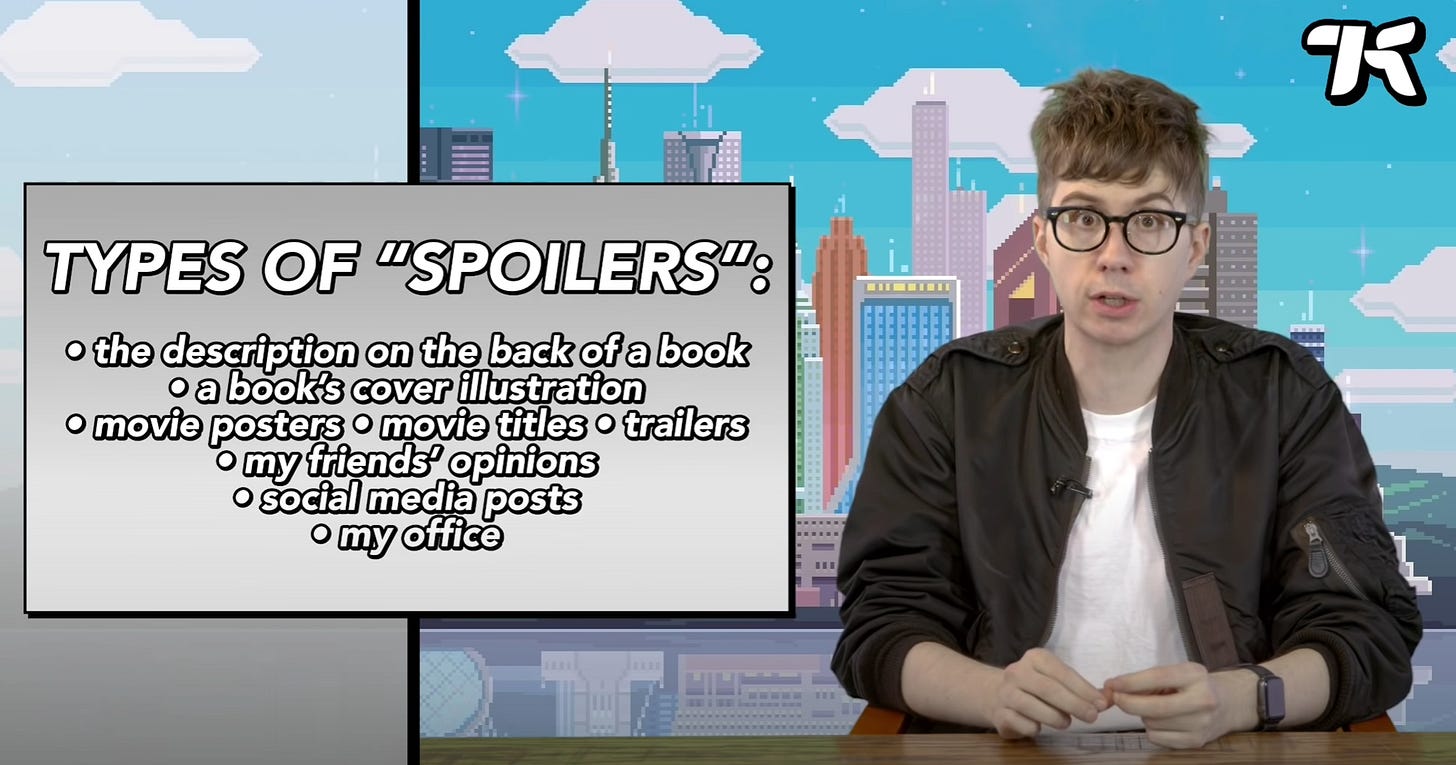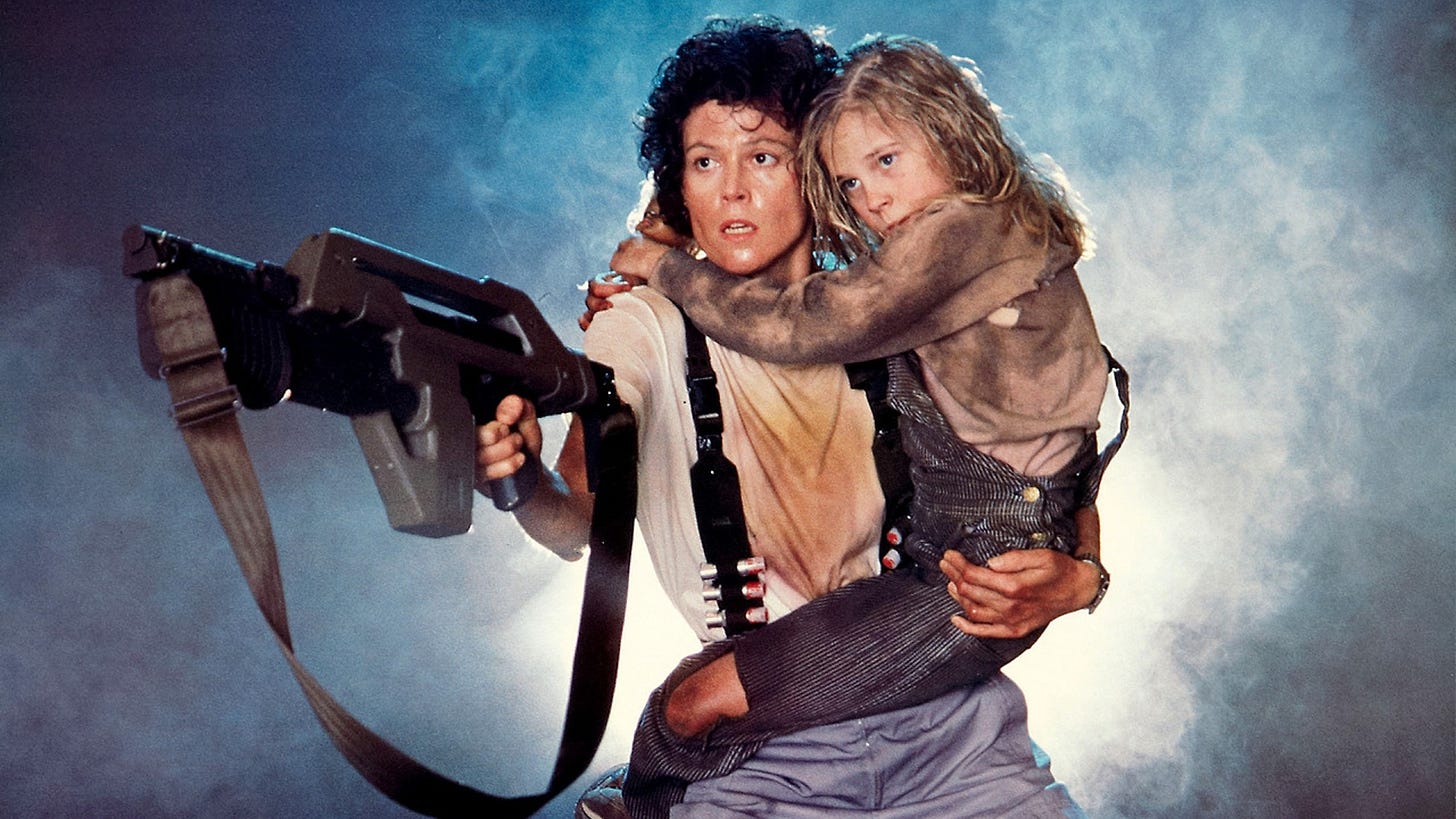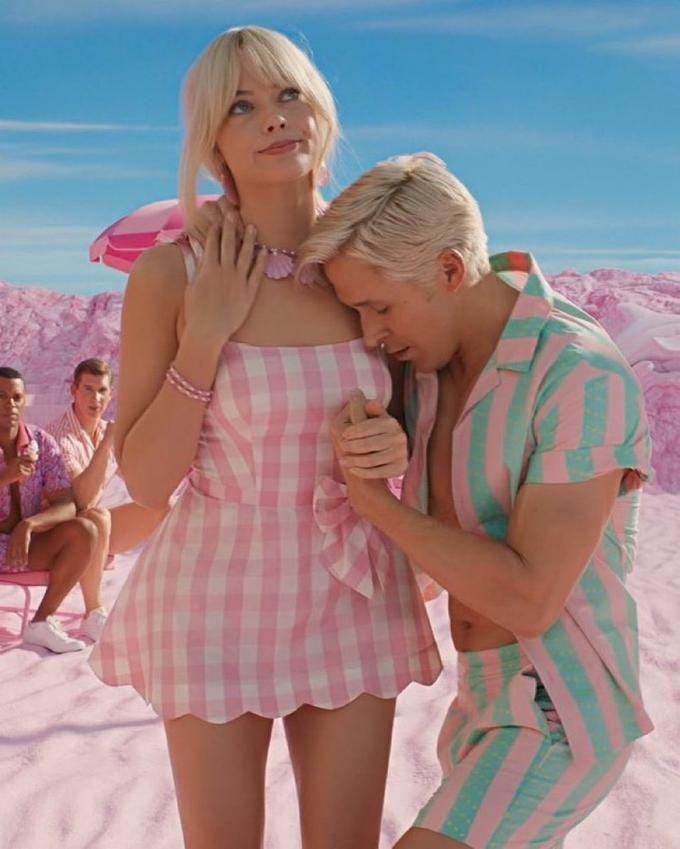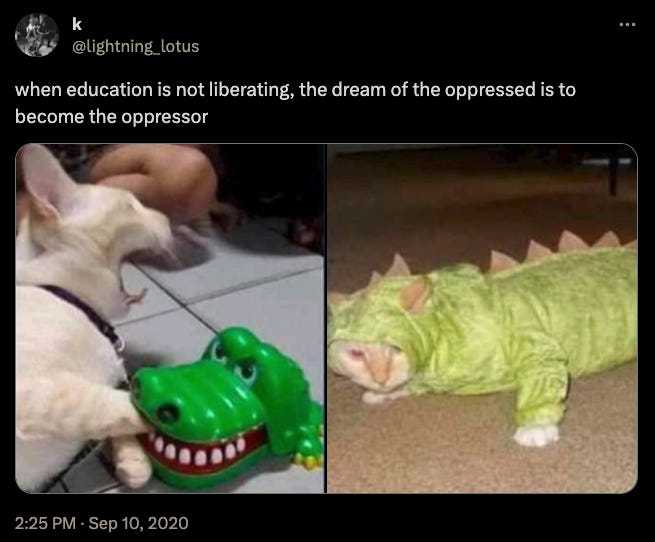Warning
This essay contains significant spoilers for “The Barbie Movie”, including one major plot detail, some general themes, a couple of gags, and my broad opinions. You have been warned.
 Pictured: a huge spoiler baby
Pictured: a huge spoiler baby
The Barbie Movie was alright! A solid six or seven out of ten for me. I laughed lot, but even though it was blissfully short by modern standards (just shy of two hours), I was a bit bored for much of the runtime. If you liked it more than me, I am happy for you. I don’t think I was the intended audience, and that’s okay! There were still some bits that I really enjoyed, like the Space Odyssey intro sequence, the oops-all-Kens dance number, and when they put me personally on blast as someone who plays guitar for (read: at) people who I want to make out with [touché!].
Given that the primary theme of the movie was Big Time Feminism™, I’m feel embarrassed to admit that the performance I enjoyed the most by far was that of the leading man, Ryan Gosling. He plays Barbie’s neglected-afterthought-of-a-boyfriend, Ken, and he acts his goddamn heart out in this role, bringing much-needed life to a script that I frequently found dull and overwrought. Ken’s arc also relates to one of my perennial obsessions, which is the uncertain societal role of “normal men” in the modern first world.
At this point the theory of feminism feels fairly mature, if not the practical application. After decades of refinement (and despite occasional regression), we’ve developed some good ideas (and some bad ones) for what a more liberated model for aspirational womanhood might look like, beyond the traditional virgin-to-mother-or-spinster pipeline. We’ve also devised countless policy proposals for how to affect the system-level changes necessary to create genuine freedom and empowerment for people of all races/genders/sexualities/etc.
 A more liberated model for aspirational womanhood1
A more liberated model for aspirational womanhood1
This invites the question: if we were to achieve all the aims of fourth-wave feminism, what roles will young men occupy in that idealized future? If they’re no longer needed as breadwinners or soldiers, will it be possible for straight cis [white] men to maintain the baseline level of social status that we’ve been able to take for granted for countless centuries? Contrapoints, perhaps my favorite YouTube weirdo of all time, calls this “The Man Question”. In her words:
The sacrificial role of men as warriors is no longer widely glorified or necessary. The traditional protector/provider role of men is being replaced by a more equal and undefined gender dynamic. And college professors and activists are telling men that most of our culture’s aspirational representations of manhood are toxic and bad.
But without an attractive replacement vision of aspirational manhood, average young men can only imagine their future as… what?
From “Men” by Contrapoints
I’ve watched this video five or six times at varying levels of sobriety, and I’m no closer to answering the question myself. Like the shadowy cabal of college professors and activists, I find most traditional expressions of masculinity not just toxic, but also deeply annoying. My misandry is such that when a straight cis man is having what appears to be an Uncomplicated Good Time, I often find them sort of annoying to be around. Simple expressions of male joy can read to me as smugness or overconfidence. In short: I am a hater.
 Look at this smug bastard, cooking his beans in his well-appointed kitchen. FUK U
Look at this smug bastard, cooking his beans in his well-appointed kitchen. FUK U
The Man Question is implicitly asked (but not answered) by the Barbie Movie. After the aforementioned Space Odyssey sequence, we meet Barbie-Prime at her home in “Barbie Land”, a post-feminist utopia in which every day is perfect for all women—who are all named Barbie—forever. Every Barbie is totally self-actualized; their physical and emotional needs are taken care of by other Barbies, or by mysterious supernatural forces, without regard to their race, profession, or disability status. Class distinctions, we must assume, have been abolished.
Which all sounds lovely! So what about the Kens?
Reflecting their status as supplementary dolls in the Mattel catalog—more accessory than character—Kens are the second-class citizens of Barbie Land. They live in perpetual adoration (and arguably servitude) of their Barbie overlords, unable to own property, hold jobs (besides “beach”), or make their own decisions. One of my favorite lines in the movie describes their dynamic perfectly: “Barbie has a great day every day. Ken only has a great day if Barbie looks at him.”
 Truck is my Barbie :(
Truck is my Barbie :(
It’s unclear whether the Kens’ second-rate status is due to a biological or cultural failing of their species, or if this power imbalance is baked into the Barbie Land constitution (sounds like a joke if you haven’t seen the movie, but no, there really is a constitution). The Kens are not necessary, more like pets or semi-sentient furniture in a world run by-and-for Barbies. They have nothing to aspire to, or hope for, except the fleeting affections of their inarguably-better halves.
To briefly get into deep spoilers: the Kens’ total lack of power (or, I’d argue, healthy goals & aspirations) leads them to revolt, creating a patriarchal regime of Ken-on-Barbie-oppression, mirroring the male-on-female violence that pervades the world that birthed them.

None of this is the main thrust of the movie, which is more about the so-thin-as-to-be-invisible tight rope that women must walk if they want to be admired, self-actualized, socially acceptable, and safe [pick three]. There’s plenty of discourse on that topic by smarter writers that I, with firsthand experience of the challenges women facing women. But, as a Certified Real Boy™ [eat your heartwood out Pinocchio], I do feel slightly qualified to talk about masculinity, which I’ve personally struggled with for my entire life.
I’ve never felt connected to traditionally masculine qualities or ideals—aggression, toughness, competition, social dominance, etc. As a boy I didn’t aspire to be a protector, provider, or warrior. My primary value was in “knowing stuff”; I though that the more stuff you knew, the better (higher status) a person you were. As an adolescent that evolved into “creating stuff”, and more recently shifted towards “helping and/or connecting with people”**. All this is to say: I’m doing fine, and I don’t think that the end goals of an ultrafeminist utopian movement would particularly hurt or alienate me.
But many men still do aspire to those traditional roles—and believe it or not, millions of them are having an increasingly Complicated Bad Time. They need a positive vision for their personal future, or they’ll try to tear down the progress we’ve made towards gender/racial equity in an effort to restore outdated models of male success and heroism. Some are already trying.
[One of my hot takes is that learning to love oneself is mostly about convincing yourself (and ideally your friends and family, too) that the most important/good qualities & skills are the ones you happen to already have. Like, everyone knows that being a good whistler makes you a good person. Everyone knows that!]
Footnotes
-
Hopefully obvious that this is a joke; I do not actually think Ripley is a perfect role model for women, even if she is Really Cool. ↩